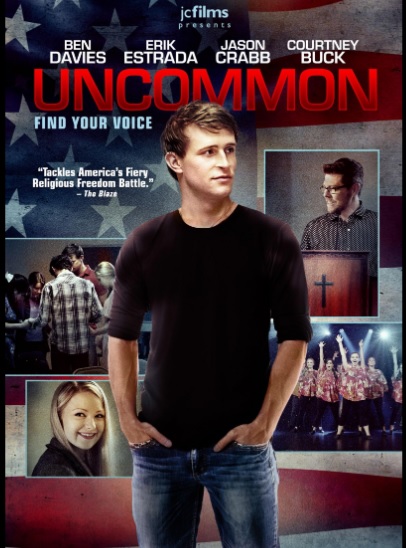The 2012 film, New Hope, is narrated by Michael Evans (Samuel Davis).
Michael is a seventeen year-old preacher’s kid whose father, Alex (Will Schwab), has just gotten a job in the small town of New Hope. As a result, Michael has to move in the middle of his senior year. (Yikes, not fun!) He’s not happy about that and, to make things even worse, Michael’s father has talked the high school basketball coach, Tom Miller (Reg Rob), into putting Michael on the team.
(Is it normal for coaches to put someone on a team without having them first try out? The basketball team is in the playoffs, after all.)
Michael tries to explain to Coach Miller that he’s not that good of a basketball player. Coach Miller replies that he doesn’t really care whether or not Michael is a good player. Instead, he wants Michael on the team so that Michael can be a role model for the younger players. Coach Miller assumes that, as a preacher’s kid, Michael will automatically be a good influence.
Uhmm …. has the coach ever met any preacher’s kids before?
Seriously, I live in Texas and, when I was growing up, my family moved all over the Southwest. I have known a lot of preacher’s kids and, for the most part, almost all of them were wild. Even the ones who were religious and planning on going into the family business were wild. When you’re a teenager, your natural instinct is to rebel against whatever it is that your parents are about and, as a result, preacher’s kids usually have a lot to rebel against. There’s a reason why everyone automatically understands what that Sweet Talkin’ Son Of A Preacher Man song is about.
And even if Michael isn’t wild (and, because this is a faith-based film, Michael is a surprisingly well-behaved high school student), how is it fair to tell anyone that they have to be a role model for a bunch of people that they barely know? Michael’s only been a student at his new school for a day.
Michael quickly finds himself in conflict with the team’s star player, Lucas Green (Ben Davies, giving the closest thing that the film has to a good performance). Lucas’s brother also played for the team until he committed suicide. Lucas, with his unresolved issues of anger, feels that Michael tying to take his brother’s place. Lucas gets even angrier when Michael starts to date his dead brother’s girlfriend, Jasmine (Perry Frost). Meanwhile, Michael’s parents get upset when they discover a condom wrapper in his jacket. Oh, you silly parents! Michael isn’t a typical preacher’s kid. The only reason he took the condom out of the wrapper was so he could throw it away.
(Seriously, Lucas seems more like a preacher’s kid than Michael.)
There’s a whole genre of faith-based films that use sports as a metaphor for having faith and not questioning authority figures and New Hope is definitely a part of that genre. Michael has no real desire to be on the basketball team but both his father and his coach want him on the team so Michael goes with it. It’s hard not to feel that Michael really needs to stand up for himself. The film is all a bit too long (the film clocks in at over two hours) and unrealistic. It’s a film that tries to tackle all of the important issues of growing up but it does so in far too ham-fisted a manner. Personally, I think Michael should have quit the team, bought a beret and a pack of Clove cigarettes, and taken a creative writing class. He would have been much happier and no one would have expected him to be a role model. There’s nothing wrong with trying different things and making your own decisions. There’s nothing wrong with being a rebel. That’s what being a teenager is supposed to be all about.


